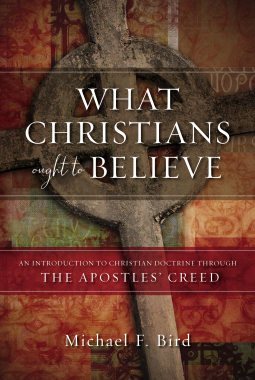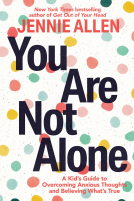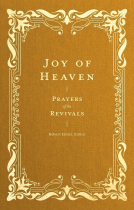
What Christians Ought to Believe
An Introduction to Christian Doctrine Through the Apostles’ Creed
by Michael F. Bird
This title was previously available on NetGalley and is now archived.
Send NetGalley books directly to your Kindle or Kindle app
1
To read on a Kindle or Kindle app, please add kindle@netgalley.com as an approved email address to receive files in your Amazon account. Click here for step-by-step instructions.
2
Also find your Kindle email address within your Amazon account, and enter it here.
Pub Date Jul 05 2016 | Archive Date Aug 22 2017
Zondervan Academic | Zondervan
Description
Modern Christians have often hesitated to embrace the ancient creeds because of our “nothing but the Bible” tradition. In What Christians Ought to Believe Michael Bird opens our eyes to the possibilities of the Apostle's Creed as a way to explore and understand the basic teachings of the Christian faith.
Bringing together theological commentary, tips for application, and memorable illustrations, What Christians Ought to Believe summarizes the basic tenets of the Christian faith using the Apostle's Creed as its entryway. After first emphasizing the importance of creeds for the formation of the Christian faith, each chapter, following the Creed's outline, introduces the Father, the Son, and the Spirit and the Church. An appendix includes the Apostles' Creed in the original Latin and Greek.
What Christians Ought to Believe is ideally suited for both the classroom and the church setting to teach beginning students and laypersons the basics of what Christians ought to affirm if they are to be called Christians.
Available Editions
| EDITION | Hardcover |
| ISBN | 9780310520924 |
| PRICE | $24.99 (USD) |
Average rating from 14 members
Featured Reviews
 Conrade Y, Reviewer
Conrade Y, Reviewer
Wonderful! A book of theological truths based on the Apostles Creed. Theology is more important than what the average Church goer may think. Rather than plowing through thick volumes of theological textbooks on systematic theology, or buy individual books on various theological topics, we have in our hands a book that expounds on the essence of the history, the core theological issues, and the crucial doctrines every Christian ought to know. The Apostles Creed is an excellent choice because it is still the most unifying creed for all (if not most) Christian communities. The Roman Catholics, the Eastern Orthodox, Protestants, Evangelicals, Non-Denominationals, Bible, Independents, and many others are pretty united when it comes to this ancient creed. Even fringe groups will very likely profess the same creed with certain disclaimers. Whether one agrees with the creed fully or not, the scope of coverage is wide enough to give the Church a pretty decent theological syllabus. Author and New Testament Professor Michael Bird has done exactly that and has written this book for the masses.
He begins by making a case for the Apostles Creed as an important syllabus for beginners. Not only is it biblical, it gives us a basic summary of what the Early Church held, what traditions are, and how they inform our theological education. Creeds are part of the way God has used to teach us. From the Old and New Testaments, we get the life of Jesus, the Apostolic teachings, the Rule of Faith, and the Creeds. Creeds are used in worship; in promoting unity and fellowship with other believers; in reminding us about our faith. They also form a key part of our devotional lives. The rest of the book deals with a particular part of the creed.
Faith God the Father God the Son Jesus as Messiah and Lord The Virgin Birth The Atonement The Resurrection The Reign of Jesus The Holy Spirit The Church The Kingdom of God and more.
Each of the chapters begin with a brief introduction, followed by an explanation of what it is, what it means, and which part of the Bible supports the doctrine. From each doctrine, Bird expands it with other important theological vocabulary to enhance our learning. There is always an application component for each doctrine expounded. The short list of recommended readings makes it convenient for planning and research for interested readers. This book is targeted at the layperson. It can be used as a preaching calendar as well. Creeds and catechisms are some of the most important resources the Church has inherited over the years. In fact, every creed came about because of the threats of heresy. Such theological threats have sparked countless debates and council meetings that culminated in a statement of belief to anchor the Church on sound doctrine, something that continually needs to be done in a world that is getting more sophisticated. Learn from our forefathers who have painstakingly put together the creeds not only for their generation but for many more, including ours and our children and their descendants.
I warmly recommend this book for your reading and learning.
Bird is an Australian Professor of Theology at Ridley College in Melbourne. He publishes widely in areas of Systematic Theology and has written a comprehensive theological textbook entitled, "Evangelical Theology."
Rating: 4.5 stars of 5.
conrade This book is provided to me courtesy of Zondervan Academic and NetGalley in exchange for an honest review. All opinions offered above are mine unless otherwise stated or implied.
 Brent P, Reviewer
Brent P, Reviewer
In What Christians Ought to Believe, Bird takes a detailed look at the importance of Apostles’ Creed both in terms of picking apart the deeper complexities and meanings within each statement of believe, but also looking at creeds as a whole as an important historical tool to mark out God’s community of Christian believers.
The Creedal statements are clarifications of what specifically it is we believe about the bible, its contents and the persons within. Bird walks us through the historical ratification of various creeds and their development and purpose. He explains their importance is beyond being simple and handy to remember biblical cheat sheets. That instead there is a wide variety of opinion and doctrine and that the creedal beliefs help cut right to the heart of the matter:
“The problem is that it is no good just to say, 'We believe the Bible!' Noble as that might sound, it runs into several problems. The fact is that many groups claim to believe the Bible, including Baptists, Episcopalians, Catholics, Methodists, Presbyterians, Jehovah’s Witnesses, Oneness Pentecostals, and many more. Yet you cannot help but notice that these groups do not always agree on what the Bible teaches.”
Bird then begins an in-depth and broad examination of the Apostle’s Creed, line by line, unpacking the various implications of each statement. He does so with some great sympathy towards readers who maybe challenged by exploring to deeply the supernatural aspects of the faith, admitting that “belief in rivers turning to blood, floating axe heads, and virgins having babies is a big pill to swallow for those of us living in the age of electricity, the internet, and iPads”. Yet Bird stresses this is entirely why we should to confront these mysteries head on and explore their implications for our faith and our relationship to the world.
Mystery is indeed what Bird explores, accepting that many of the doctrines such as that of atonement have various explanations and while some may fit more completely none can fully express completely what happened on the cross. That such mystery should not be feared but instead, a fully expected consequence given that, as Bird argues, all theology is limited to our finite language and so is at best only an approximation of what God is like and is doing.
Bird’s dismantling of the creed line by line and is sympathetic to the various interpretations along denominational and theological lines and is careful not to champion one over the other, but to embrace the greater mystery that sits between them all. In doing so, What Christians Ought To Believe illuminates the full power and impact behind each statement of belief. In short, Bird unlocks the greater story contained within the Apostles’ Creed which not only aids deeper understanding but also allows for a more powerful declaration of the creed by the individual. For Bird:
“A creed is not simply a checklist of things I’m supposed to believe, but a synopsis of the entire sweep of redemptive history that narrates a sequence including God, creation, redemption, and consummation.”
In What Christians Ought to Believe, Bird has put together a transforming, challenging and educational examination of the Apostle’s Creed that ties it directly to the greater story of hope and redemption that all Christians already freely profess and proclaim. Even for someone like myself, largely allergic to liturgy and creeds, it invigorates and breathes new life into one of the oldest Christian creeds.
 T M, Reviewer
T M, Reviewer
A great read on an important subject matter. Many evangelical and/or fundamentalists are quite distant from the creeds as they find them too "Catholic", or perhaps less pointedly, at least too liturgical.
Bird does an excellent job of building the case for the importance of the Apostle's Creed for all followers of Christ.
 Floyd J, Reviewer
Floyd J, Reviewer
Sometimes a book arrives a bit too late. Such is the case for Michael F. Bird’s newest book - a discussion of the Apostles Creed - both its roots and its meaning. Being late, does not mean that it will not be useful, only that it arrives six months after I finished a series of sermons based on the Apostles Creed during the weeks between Advent and Lent during the winter of 2016. I wish this book had been available six months ago.
Michael Bird brings an interesting perspective to his writing, in that he attempts not to merely represent his own views, or that of the Anglican church to which he belongs, or the Australian church within which he ministers; rather he speaks, as per his statement, for the worldwide evangelical church. This is useful given the almost universal acceptance of the Apostles Creed as a theological foundation for the church worldwide.
Beginning with a history of the creeds in the early church, including those simple credal statements found in the scriptures (e.g. Philippians 2:5-11). He also discusses the role that creeds played in the early church in passing on the truth to the later generations of believers and its role in the church today.
The biggest portion (75%-80%) of the book is a complete exegesis (is that the right term?) of The Apostles Creed. I would suggest that the reader keep a copy of The Apostles Creed open and in front of him or her as he reads the book, especially if reading an e-book version. Bird occasionally moves from discussing one phrase to the next without alerting the reader, having a copy of the Creed available makes it easy to follow these transitions, its absence adds an increased level of difficulty. Scripture references are used throughout the text to assist the reader in understanding the Biblical underpinnings of The Apostles Creed.
I appreciated the use of a wide range of sources in the text - representing the church’s existence across the centuries. The author has also included, with each chapter, “Recommended Reading” for each chapter. Most of these (I did not do a complete check) appear to be from more modern sources (post 1960). The book could be improved by having, as the author himself has done, the reader follow-up using material from different eras of church history.
The book could easily find its place in the church library. It should be available (as I hinted earlier) available to the pastor doing a study The Apostles Creed, whether from the pulpit or within a small group setting. This book would also not be a bad resource for the lay person choosing to read and understand The Apostles Creed for their own use. I am concerned that the price for a 200+ page book may be excessive for the lay person. The e-book is significantly cheaper, but still high for a 200+ page book. It iis probably too costly for use as a Sunday School text, though its contents may be suited for that environment. Perhaps a paper copy may become available at some point at reduced cost.
______________ This review is based on a free electronic copy provided by the publisher for the purpose of creating this review. The opinions expressed are my own.
Readers who liked this book also liked:
Harold Earls, IV; Rachel Earls
Biographies & Memoirs, Parenting, Families, Relationships













